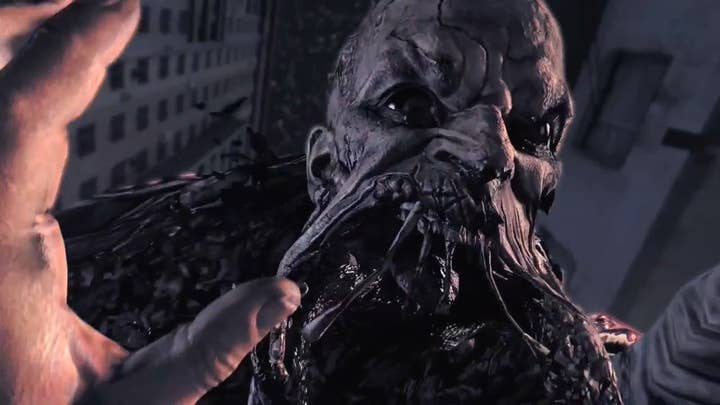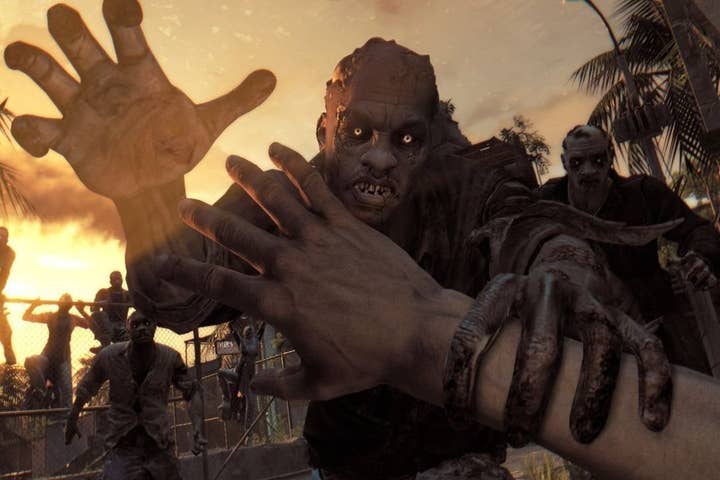Zombies he wrote: The game novelisation
An interview with Dying Light: Nightmare Row author Raymond Benson
Raymond Benson is better known for his thrillers and James Bond books than bloated corpses, but he's the pen behind Dying Light: Nightmare Row, the literary spin-off of Techland's recent zombie adventure.
"Thrillers and video game stories are very similar," he tells GamesIndustry.biz.
"You look at a Lee Child book or a Michael Connelly or any of these great thriller writers, their books are like obstacle courses. They take their main character, and you throw a lot of obstacles at them that they have to overcome before they reach their final goal."

Benson knows thrillers and he knows games, having working in both for some years. As well as writing novelisations for Splinter Cell, Metal Gear Solid and Homefront he also spent time developing games back in the days of Origin Systems and Ultima. He then became a novelist, ended up working on the James Bond IP and now finds himself writing companion novels for AAA titles.
"Thrillers and video game stories are very similar"
"The projects have always chosen me. I'm primarily a thriller writer, a novelist of original novels. I guess it started when, after I finished doing the James Bond novels, the editor at my American publisher was handling Tom Clancy, and they decided to start the Splinter Cell books around 2004. Because I'd had the experience with James Bond, the editor thought of me to be the guy to write the first couple of Splinter Cell books. He called my agent and pitched the project, and I took it," he explains.
"From then on, I've been on a short list of authors that do this kind of thing, which is really great. We call it media tie-in work. We do novels or novelizations of video games or television shows or movies, and it's good bread and butter work."
It's a growing part of the universe building that is so crucial to the longevity of the modern AAA title. Oliver Bowden (AKA Anton Gill) has written an entire series of Assassin's Creed novels, and there are novels for every genre from Doom to EVE. It isn't always outsourced. Patrick Weekes is an author at Bioware on both the Mass Effect and Dragon Age franchises and has authored a Dragon Age novel and a Mass Effect comic.

Benson explains that the writing process differs for different types of novel; some are original works based on the IP, some are straight adaptations. Benson has written both but prefers the more creative approach.
"With Splinter Cell, Hitman, Homefront, and with Dying Light, these were all original tales. These were in many cases prequels to the game that I was doing. They work as almost standalone novels that you could just read independently of playing the game. Hopefully, they would attract readers who are not gamers," he says.
"We do novels or novelizations of video games or television shows or movies, and it's good bread and butter work"
"Like for Dying Light, maybe they're just zombie fans, and so they would read the Dying Light book, but couldn't care less about the game. On the other hand, if they're a big fan of the games, then it adds another element to the universe that they can dip into. The Metal Gear Solid books were strict adaptations of the existing games. In those cases, I worked right off the scripts as well as watching the game play."
Benson admits that these days he doesn't play games as much as he use to, but he does watch his son play.
"That said, whenever I get a project like this, I do try to play a little bit of the game at least. I'm not very good at these. When I was doing games, we were still in DOS. We weren't in Windows yet. We didn't have the kind of twitch play."
The process involves feedback from the development studio, and often Benson will check in with them to clarify details on, say, a character or a weapon. Ultimately, it's the studio that gives the greenlight on his story too, so he'll provide them with an early outline for approval.
"I spend quite a good deal of time coming up with a good story. My outlines are basically prose treatments, where they're broken out by block paragraphs, and each paragraph represents a chapter. I put in the outline what's going to happen in that chapter that advances the plot. I don't use any kind of dialogue or descriptions or anything in my outlines. It's all plot, it's all the story," he says.
"It almost becomes a blueprint, a roadmap for the book. It's helpful for the game company, too. They can see right off the bat, they can read it in 20 minutes and see exactly what I'm going to do. We spend a lot of time on the outline, at least a month, and then once it's green lit, then I'm off and running. It takes usually two to three months to write the book."
Dying Light: Nightmare Row follows Mel Wyatt, a teenager and athlete who participated in the Global Athletic Games. Stuck in Harran and orphaned as a result of the outbreak, Mel and her younger brother must try their best to survive. The novel is due for release soon.

